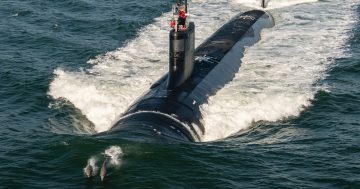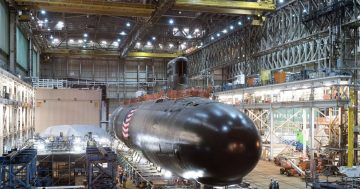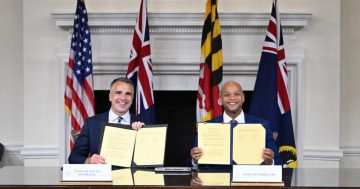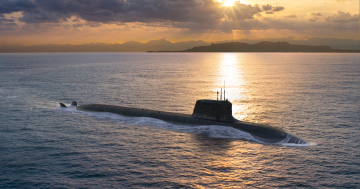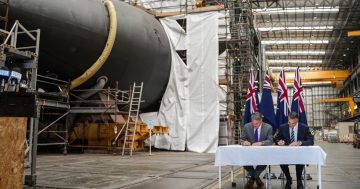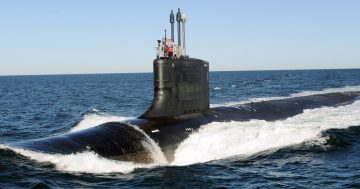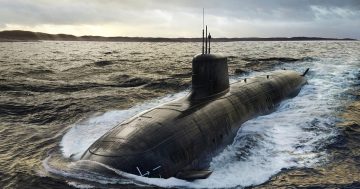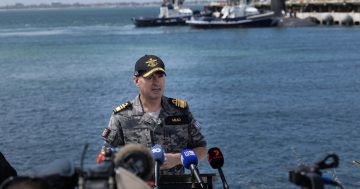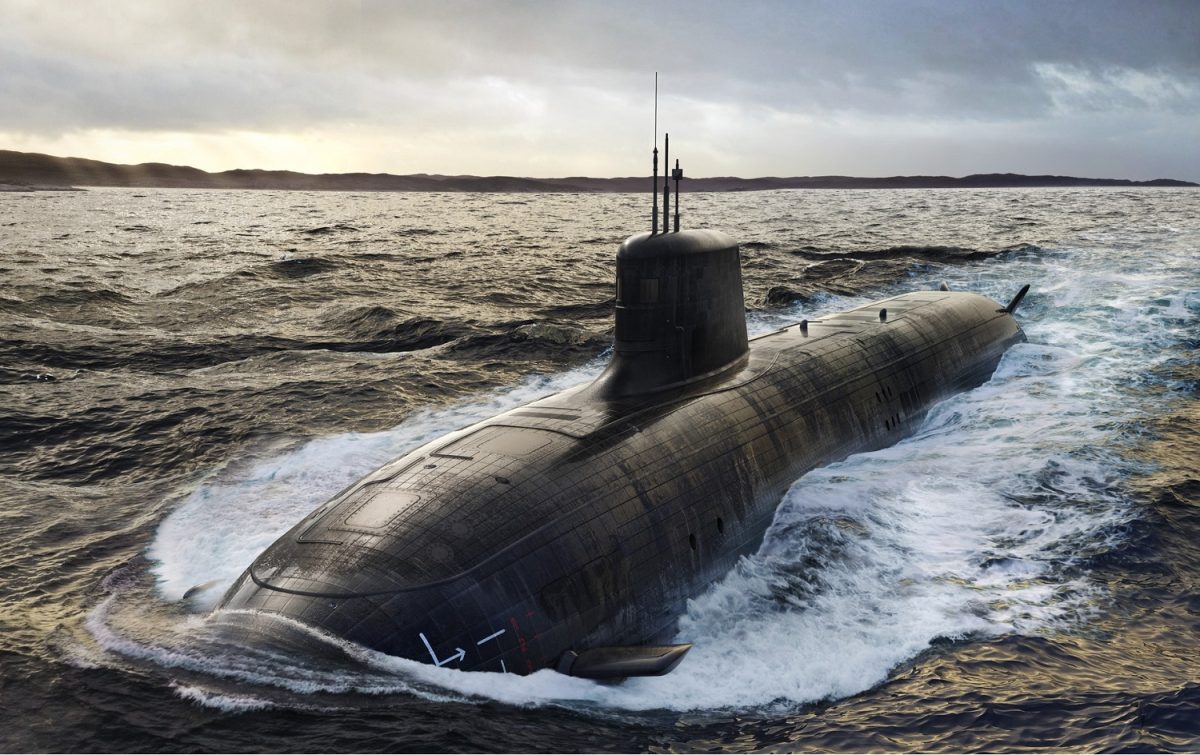
Concept art of the SSN-AUKUS submarine design. Image: UK MoD.
Two central US and UK-based companies involved in the design and manufacturing of nuclear-powered submarines have joined forces with three Australian universities to develop the workforce that will be required to build and operate these vessels in Australia.
Dubbed the AUKUS Workforce Alliance (AWA) and launched on the eve of the Indo Pacific 2023 maritime exposition in Sydney, the University of NSW, University of Adelaide, and Curtin University have partnered with Babcock Australasia and US-based HII (Huntington Ingals Industries) to build a skilled workforce in support of Australia’s ambitions to build and operate nuclear-powered submarines as a part of the trilateral AUKUS Pillar 1 construct.
The AWA will establish in-country courses and qualifications necessary to train thousands of qualified Australian engineering, maritime, nuclear trade and professional workers to support Australia’s nuclear-powered submarine enterprise from infrastructure, sustainment and supply chain through to disposal.
In a 6 November joint release, the AWA says it will:
- Establish a proactive, innovative and internationally recognised platform for skill enhancement and leadership to support the development of a sovereign, nuclear-powered submarine workforce in Australia
- Lead the development and execution of critical upskilling programs, focusing on harnessing the full potential of Australia’s industrial base, and
- Foster cutting-edge research and practical experience for the future workforce.
Vice-Chancellor and President of UNSW Professor Attila Brungs said UNSW was pleased to contribute its expertise to the AWA.
“We look forward to supporting the Australian Submarine Agency’s ‘whole of nation’ skilling objectives through collaboration with our partner universities in Adelaide and Perth, as well as with two global defence industry primes, in Babcock and HII, boasting a deep shared submarine capability sustainment heritage.
“Our postgraduate and short courses across many faculties are geared to skill-building in advanced capabilities,” Professor Brungs added.
“Coupled with UNSW’s nation-leading Faculty of Engineering, the only nuclear engineering program in Australia with cutting-edge work on nuclear safety, UNSW is already pivoting towards generating the workforce needed across the entire nuclear ecosystem, from social licence to manufacturing facilities to regulatory authorities.”
Babcock Australasia Managing Director AUKUS and International Sir Nick Hine added, “Collectively, we will equip the workforce with the knowledge and the skills required to deliver the most complex and largest Defence agenda in Australia’s history”.
“Given our extensive global experience in sustainment, nuclear safety and stewardship, Babcock stands ready to assist Australia in delivering this very significant opportunity, including growing the required workforce to support the delivery of the nation’s first nuclear-powered submarines.”
HII President Nuclear and Environment Services Group Michael Lempke said, “HII is proud to work with Australia’s education institutions and to bring more than 60 years of nuclear shipbuilding expertise to the training of a workforce capable of supporting, and ultimately executing, nuclear shipbuilding”.
“The AWA is an investment in the security, and economic and technological progress of Australia. This comprehensive and rigorous training approach is also a commitment to the safety and protection of people and the environment and fostering public trust.”
Australia is expected to take delivery of its first Virginia-class nuclear-powered submarine from the US in 2032. It hopes to launch the first of several SSN-AUKUS submarines from the Osborne shipyards in Adelaide from the early 2040s.
Original Article published by Andrew McLaughlin on Riotact.


